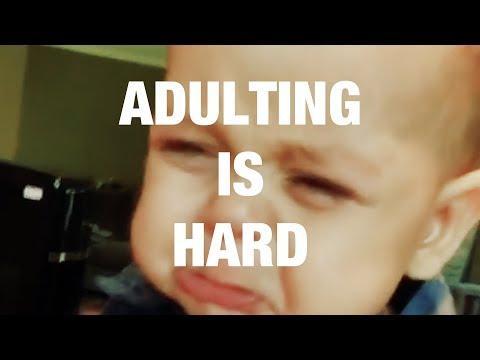Active ageing: How elderly people can stay young at heart
WITH the population of over-65s set to surge, keeping loneliness and isolation at bay is more important than ever. But there are ways to slow ageing and boost wellbeing.
VIC News
Don't miss out on the headlines from VIC News. Followed categories will be added to My News.
“IT was a thrill. I was in tears almost, lump in the throat sort of thing,” Havel Rowe, 89, says of watching his beloved Tigers triumph in this year’s AFL Grand Final.
He took his grandson to the match.
What made the win more poignant is the fact that Rowe is a former Richmond great, winning the team’s best and fairest award in 1953. Almost 65 years on, Rowe is still spirited and lively and while his agility may be unusual, being an octogenarian is not.
Like most developed countries, Australia’s population is ageing, due to sustained low fertility and increased life expectancy.
According to the Australian Bureau of Statistics, in the past two decades, the number of people aged 85 and over increased 141 per cent, compared with a total population growth of 32 per cent. There are now 484,600 Australians over 85.
ELDERLY CARE: Laughter can improve wellbeing in elderly people
SUPERAGERS: High-achieving older Aussies reveal secrets to defying old age
OUR ELDERS: Five Melburnians share their wisdom and insights
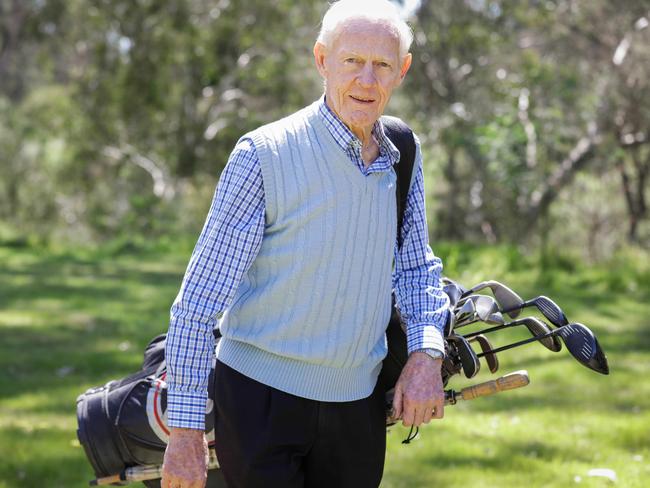
Right behind them, the proportion of the population aged 65 and over is projected to increase more rapidly over the next 10 years.
The ABS predicts population ageing will have a range of implications for Australia, covering health, the size of the working-age population, housing and demand for skilled labour.
But what about the implications for the elderly themselves? How can they combat the difficulties of getting older, such as sore bodies, loneliness, isolation and lack of relevance? Would they be better off in care or at home?
“The most difficult thing to do in your life, as you get older, is getting down on the floor and getting back up again, so I do my floor stretches every day,” Rowe says. “It straightens you out, ’coz you tend to get a bit slouchy.”
There’s nothing slouchy about this 89-year-old, who plays golf twice a week.
“I walk 18 holes — that’s the important part. It’s pretty unusual at my age to be doing that,” Rowe says.
Asked about his golf handicap, he grows shy.
“It used to be six and now it is 26. I’m a bit ashamed about that,” he says. “I had a heart operation 18 months ago and my golf went downhill from there and I am only just recovering
now.”
VULNERABLE: Elderly Victorians easy prey for abuse in nursing homes
DAMNING REPORT: Worst Victorian aged care named and shamed in audit
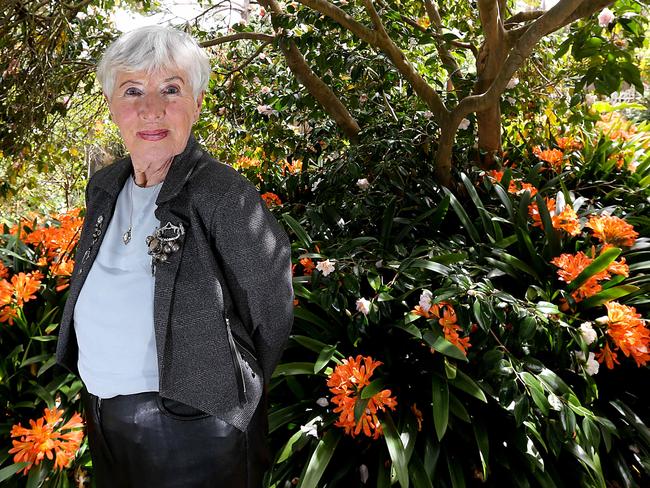
Keeping active is the key to warding off ageing’s aches. Take Marita Hutchison, 82, who happens to be my very spry aunty. She walks every day.
“My advice is get out into the air, walk until it hurts and then come back,” Hutchison says.
As if that’s not impressive enough, Hutchison plunges into the ocean near her bayside home and swims 1 km out to a buoy and back. It’s enough to make most 20-year-olds feel flabby and shabby.
“For the first 12 strokes, it hurts; it’s cold and you wonder why you do it. After that it’s like dancing and you get into a rhythm: one, two, three, four. Swimming is my greatest joy,” Hutchison says.
Another peril of ageing is loneliness. It’s heartbreaking to hear stories of elderly people who go for weeks without contact with other humans. Does Rowe get lonely?
“I don’t let myself. I go to lunch five times a week sometimes,” he says. “ I have a lot of friends about the place. It is most important.
“I would hate to be stuck in my room. If I am in there for one day, I get a bit toey. My advice is join a group. A lot of my friends are in an exercise group.
“You have to be a member of some institution and mix with people. That’s the only way to avoid loneliness.”
Asked if she gets lonely, Hutchison laughs.
“I wish. I’m totally surrounded by people. If I head out for an hour, I come home and may have seven messages on the phone,” she says.
“I have girlfriends that come over every Saturday afternoon. One of them is 102 years old. She turns up with her hair beautifully styled, full make-up on, and she will be the life and soul of the party.”
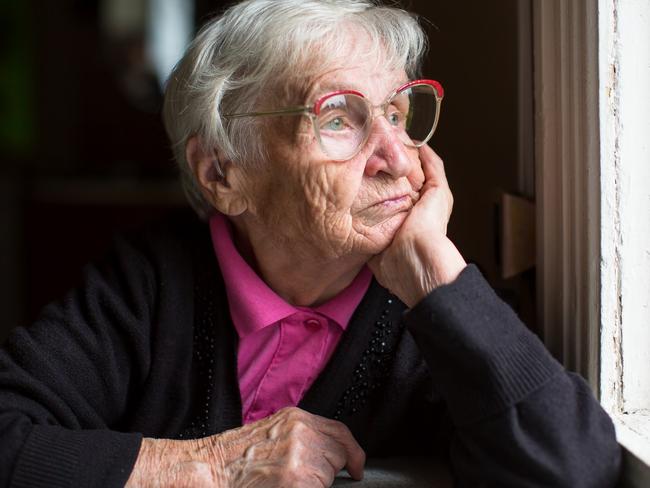
It’s understandable many of our elderly suffer from existential crises and question whether their life has any meaning, value or purpose. Hutchison says it is important to stay relevant and busy.
“When you grow old, your greatest enemy is bed,” she says. “People will retreat to it all the time, saying, ‘Oh, I am tired, I have nothing to do’. Because of that they lose faith and pride in themselves. You have to keep doing something to make yourself worthwhile.”
For Hutchison, it’s a matter of getting out in her massive garden, which is on quite a steep slope. She’s out there every day doing the weeding, the sweeping and the cutting back.
Her other passion is saving rescue dogs. She currently has a scotch collie and a little French poodle with heaps of attitude.
“The collie has stolen my title as ‘The Old Queen of the Doggie Beach’ and I am a bit cheesed off about that,” Hutchison says.
One of the biggest issues plaguing not only the elderly, but also their relatives, is whether to move into an aged care facility. For Rowe, it was the best decision he ever made.
He relocated to a low-level care facility because his wife was there. Sadly she died two years ago, but Rowe chose to stay. Does he like it?
“I don’t have to even make my own bed. Does that describe it?” Rowe laughs. “It suits me to have someone to look after me rather than having to look after myself.
“I don’t do anything. Meals are provided, washing gets done, you don’t pay any bills. I don’t pay anything extra, apart from a monthly fee.”
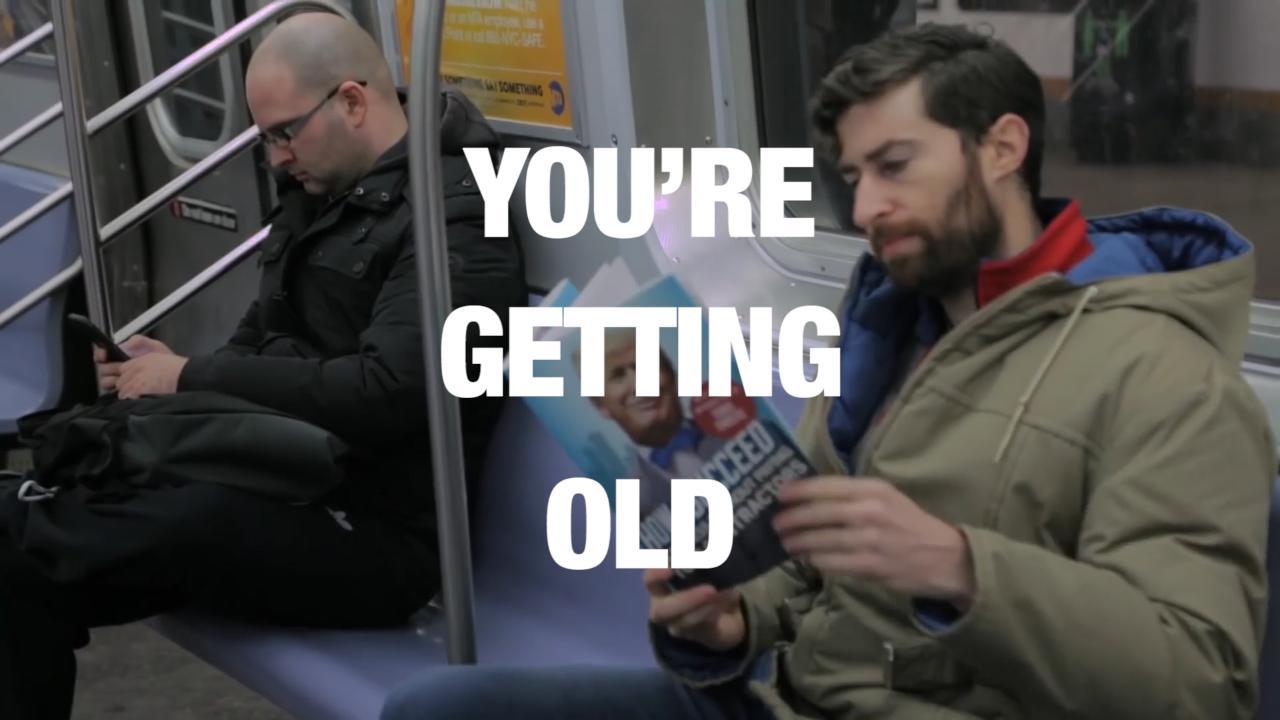
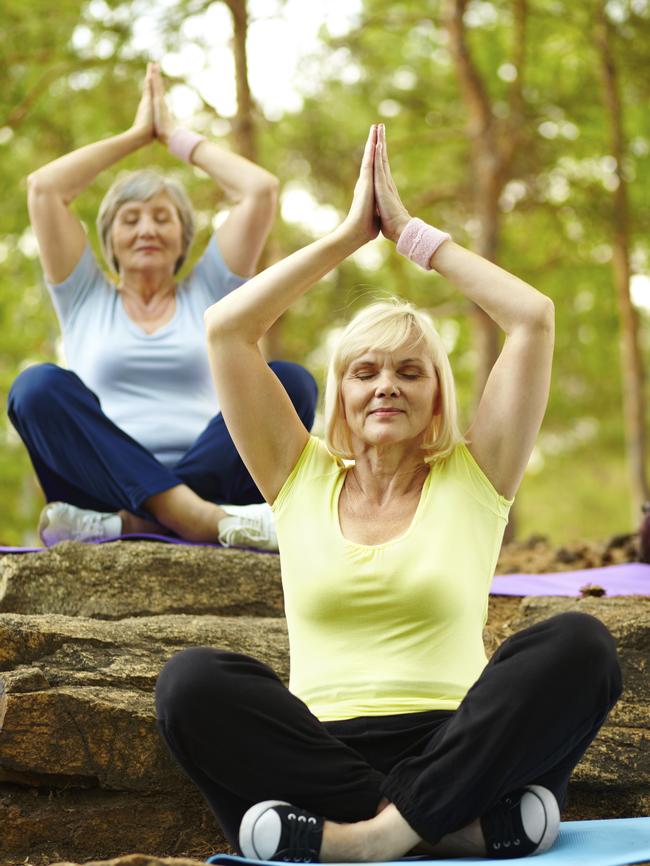
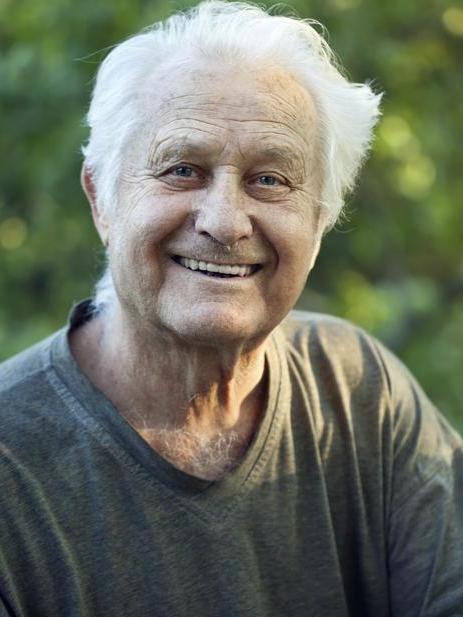
Sonya Vanwyn is the manager at the Greenslopes Retirement Home.
“You have got the security of having people should you need it, of having care if you need it,” Vanwyn says. “Especially important is the night-time security because if someone becomes ill, if something happens, it is usually 3am. Here you have someone on hand.
“But you are also free to do what you want. We like to promote independence.”
Kind of like having a wife who doesn’t nag?
“Oh we nag Havel,” Vanwyn laughs.
Hutchison is a widow. Her husband Peter, a Kokoda veteran, died eight years ago. However, she’s rarely home alone as she runs a successful B & B with ocean views in the flat below her house.
She says her worst nightmare would be to be shuffled off into a nursing home. So, what is it about care that frightens her?
“You are out of control. I would not have control of my own life,” she says.
The important thing for the elderly is having a real option. Too many go into residential care against their wishes because there is not enough support at home. Others are struggling at home without the correct level of care.
“Both scenarios impede the ageing experience,” says Ian Yates from COTA, the council of the ageing representing the rights, needs and interests of older Australians.
The Federal Government’s home-care packages program is aimed at helping older Australians with complex care needs to live independently in their own homes. The Government provides a subsidy to an approved provider to co-ordinate a package of care and services based on four levels of support, from basic care to high-level care needs.
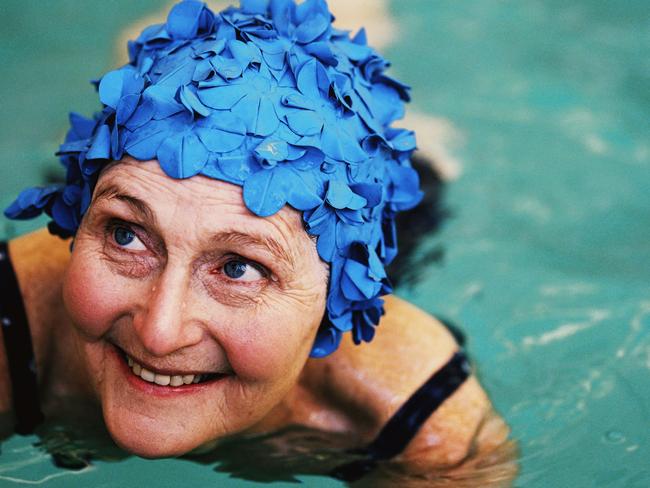
Part of the problem, Yates says, is that the system is not meeting the needs of our ageing population.
“There is no waiting list for residential care. There are vacancies all over the place,” he says. “But a recent report showed about 54,000 people were waiting for a home-care package. A further 35,000 people are on a lower package than they have been approved to receive.
“That’s nearly 90,000 elderly Australians going without enough physiotherapy, home help, support for showering or transport to appointments. As a result, older people either suffer or additional pressures are placed on families and neighbours to fill the gaps. This is not sustainable.”
Melbourne-based inventor and entrepreneur Terry Crews, 71, is working on a solution.
“My belief is we can live better longer, not just live longer,” Crews says. “I started doing research on the medical side of ageing and realised one of the biggest problems was isolation. I then looked at how we could fix that with technology.”
He talked to 98-year-olds living successfully at home alone, children with parents in their 80s and 90s, doctors, occupational therapists and people caring for older people, and he asked, “What would make a difference?”
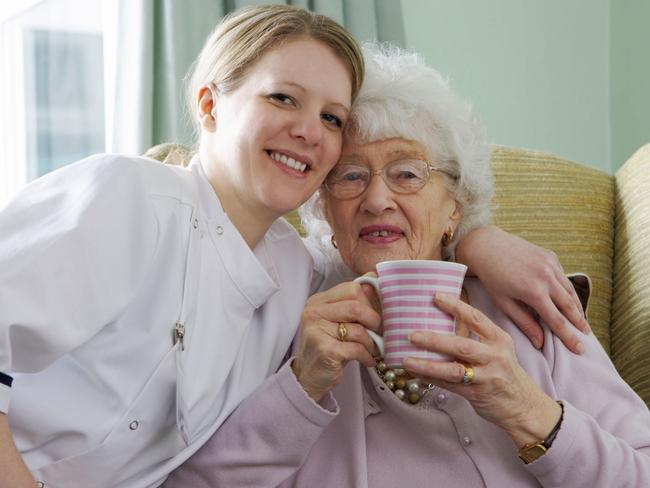
Crews developed “Gabriel”, a technology system that allows the elderly to remain independent and at home for longer. At first glance, Gabriel looks a bit like Skype. A small interface or iPad-type device allows the elderly to connect daily with family, and lets family check in on an ageing relative. But it is much more.
Technically it’s a residential artificial intelligence platform — a kind of in-built robot — that gathers information using sensors. Gabriel can detect falls within the home, changes in daily habits, ensure medical adherence and even warn about intruders.
In an emergency, services can be called and family and carers notified. All this intelligence can run off the existing landline.
Sounding a bit sci-fi? Crews assures me the main driving force is connecting grandparents and grandkids on a daily basis.
“I believe nursing homes highlight loneliness,” he says. “While the elderly are at home they get some visits from the family, whereas in nursing homes you have people with severe dementia or people in the late stages of dying. You don’t want to take your grandkids along. That just adds to the whole anxiety.
“During my journey I realised over-65s are isolated but under-25s are just as isolated. If we connect the youngsters with the oldies we can help fix the problem.”
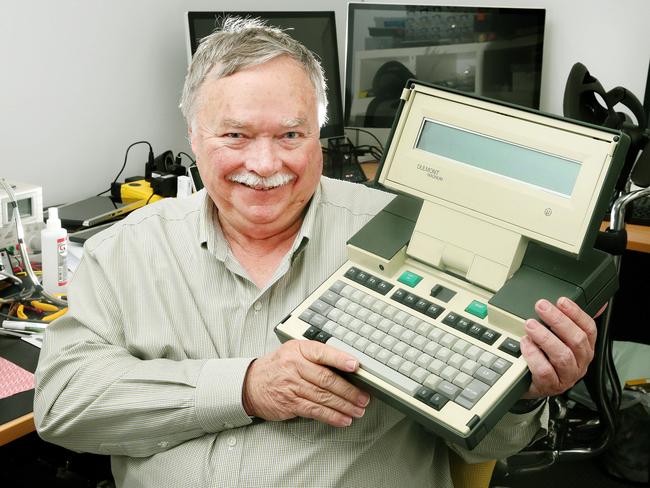
Too often the elderly are treated as useless nuisances. Hutchison feels this discrimination.
“I find it quite insulting that people see me as the number 82,” she says.
“They don’t look at what I am achieving at my age. I know people in their 40s that don’t do what I force myself to do; not can do, but force myself to do.
“You are not allowed to be sexist, you are not allowed to be racist, but my goodness you can be ageist and I find it very, very hurtful.”
Yates agrees. “Ageism is one of the last ‘isms’ left that hasn’t been tackled,” he says. “There is no government campaign against it.
“But it is very much there and it permeates right through into the workplace. We still have an image that life has a use-by-date. After that you are on a slippery slope and past it. That is rubbish. We need to challenge it.”
So how can younger Australians help the elderly age?
“Recognise that, yes, our elderly may have some limitations but they can still learn, grow and make a difference,” Yates says.
“We need to reframe what it is to be older. You are not in God’s waiting room. You are a contributing, valuable, influential member of our community.”
Hutchison wraps up our interview. She has to get out of her leather pants and into a swimsuit. She has people to meet on the beach and her 1km swim to finish.
“I’m not just that old lady down the street, you know,” she says.
